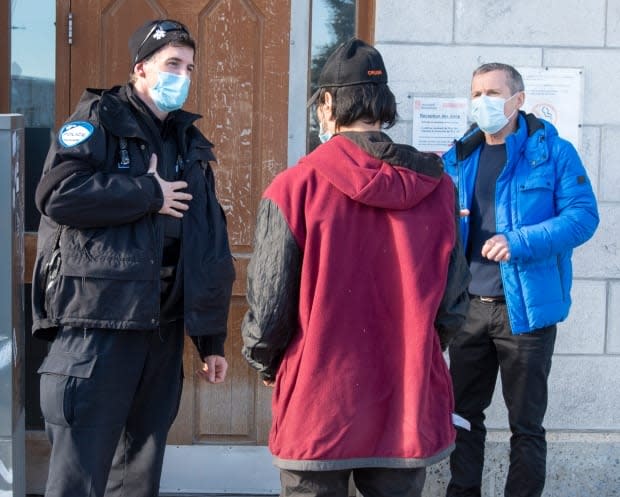Indigenous people should be priority for COVID-19 shots even amid shortage: minister

Indigenous Services Minister Marc Miller said Wednesday the federal government is still committed to its ambitious plan to vaccinate remote First Nations, Métis and Inuit communities by the spring even as the country grapples with a scarcity of shots.
Miller said he expects provinces and territories to continue to direct shots to these places and ignore "politically expedient solutions" that would result in doses being diverted from priority populations to other communities.
He said he's worried that the collective commitment to prioritize some Indigenous adults could crumble in the face of pressure from other constituents.
"This is not a political game. It's about science, it's about facts, it's about health care. We have the numbers, the casualties. Indigenous peoples are 3.5 to five times more vulnerable to COVID, we see it with the CDC numbers in the states," Miller said, referencing figures from the U.S. Centers for Disease Control that show some Native American communities have been ravaged by the novel coronavirus.
"We hope that remote communities will continue to receive the vaccine and really see success when it comes to immunization," said Valerie Gideon, a top bureaucrat at Indigenous Services Canada.
Provinces urged not to change course amid shortages
Miller said the National Advisory Committee on Immunization (NACI), the outside body that provides advice to the Public Health Agency of Canada (PHAC), has been clear that the first batch of shots should be earmarked for the most vulnerable in society, and Indigenous adults are rightfully on that list.
Because health-care options are limited at the best of times in these remote areas, Indigenous individuals can face an elevated risk of death and "societal disruption," NACI said.
Miller urged provinces not to change course even as calls grow for more shots elsewhere with Pfizer dramatically reducing its deliveries to Canada over the next month. The U.S.-based company is retooling its manufacturing facility in Puurs, Belgium to meet greater global demand for its product.
"The science is saying priority needs to be given to Indigenous communities," he said,noting that many people face substandard living conditions that make them more susceptible to infection. "Let's try to avoid inserting political decisions."
Last month, Manitoba Premier Brian Pallister raised concerns about the federal government's vaccination plan for Indigenous communities, saying the proposed distribution model would be "unfair" to Manitobans. Some Indigenous leaders said he was wrong to single out First Nations communities.
Miller said the federal government is committed to fully vaccinating 75 per cent of Indigenous adults living in the northern territories by the end of March. The rest of the country isn't expected to reach that milestone until sometime this summer.

Vaccinations are currently underway in 196 First Nations on-reserve communities and in Inuit communities in the provinces and territories. Another 143 communities have clinics planned.
Most Indigenous communities receiving Moderna vaccine
While the Pfizer product has been the workhorse of the global vaccination effort so far, most Indigenous communities are receiving the Moderna product because it has less stringent storage requirements. The Massachusetts-based company has said it will deliver up to two million doses by the end of March.
Miller said, beyond northern communities, the government is urging provinces to direct shots to the urban Indigenous population, with a particular focus on the homeless.
There have been a number of outbreaks in shelters disproportionately populated by Indigenous people. The homeless community in Montreal has been particularly hard hit in recent weeks.
WATCH: Minister says B.C. couple should express contrition for vaccine queue-jumping:
Miller said the territories need to be on guard for queue-jumpers like the millionaire couple that chartered a jet to the Yukon to get shots of the Moderna vaccine. Rodney and Ekaterina Baker posed as essential workers to get the vaccine meant for members of the White River First Nation.
"That is maybe the dumbest thing I've seen in a long while," Miller said of the couple's deceptive efforts to secure a vaccine. "I'm disgusted ... perhaps reparations on some level are due and a gesture of individual reconciliation and contrition could be exercised."

